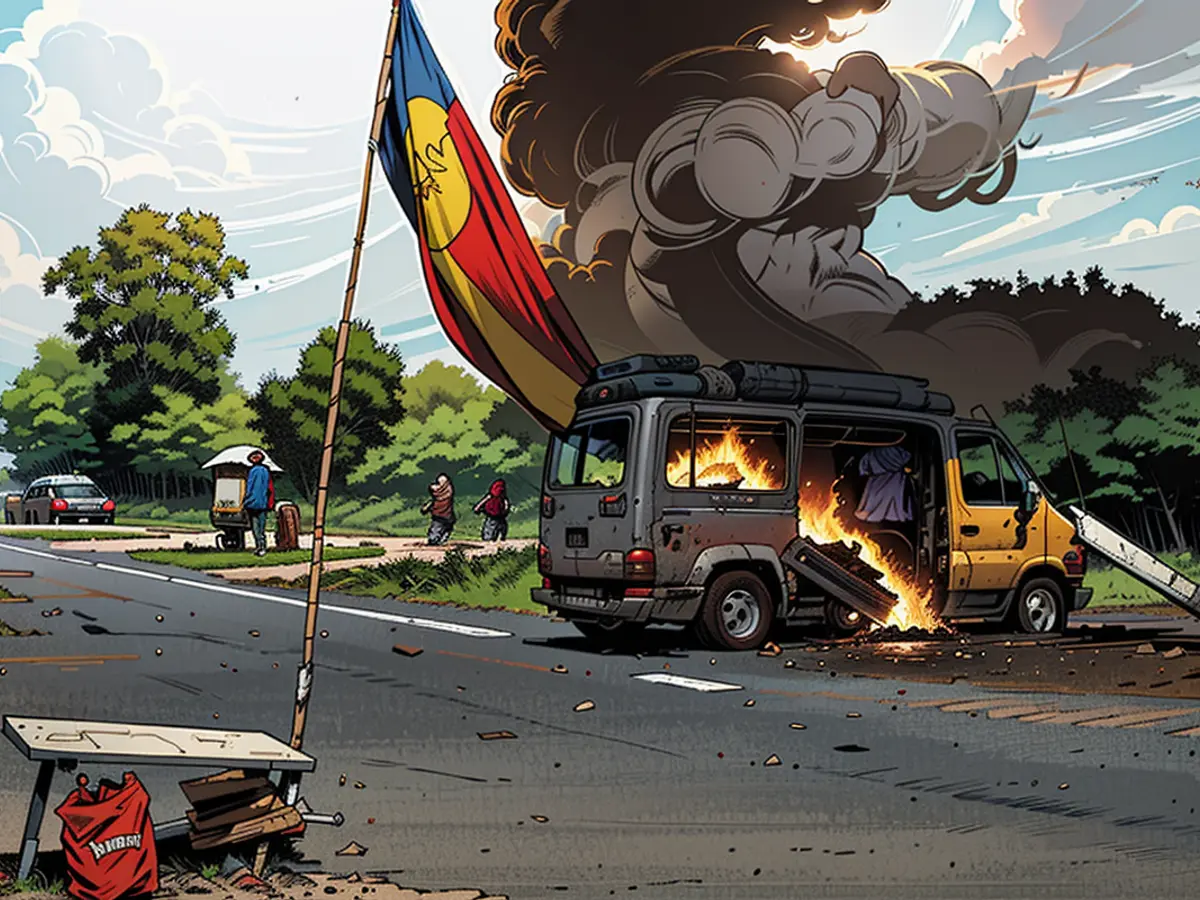Protests re-escalate in New Caledonia once more.
In the Pacific island nation of New Caledonia, governed by France, pro-independence activists have ignited fresh turmoil. After a spell of tranquility, disturbances surfaced on the primary island of Grande Terre, along with the smaller islands of Île des Pins and Maré, as per the High Commission, acting on behalf of the French government in New Caledonia.
Police stations were targeted, fires were set, property was damaged, and roads were blocked. The town of Dumbéa, positioned north of the capital Nouméa, was hardest hit.
The turmoil, commencing in mid-May and causing nine fatalities and numerous injuries thus far, originated from a proposed constitutional change originating in Paris. This modification aimed to grant more voting rights and political power to thousands of French citizens.
Indigenous Kanak people, advocating for New Caledonia's independence, are vehemently opposing this. French President Emmanuel Macron had promised a month ago to suspend the contentious reform following a trip to New Caledonia.
As a consequence of these protests, Paris enforced a state of emergency for a duration of twelve days in May. The airport in Nouméa, temporarily closed for a week, resumed operations last week. Many schools, originally scheduled to reopen on Monday for the first time post-protests, are still closed. Strategically, New Caledonia is of great importance to France due to its military and geopolitical significance, as well as its substantial nickel reserves.
Read also:
In response to the proposed constitutional change, causing blockages and protests, the indigenous Kanak people in New Caledonia, vehemently opposing the increase in voting rights for French citizens, set fires in various parts of the island, including Grande Terre and Île des Pins. Due to these protests, authorities in New Caledonia, governed by France, declared a twelve-day state of emergency in May, leading to temporary closures of key infrastructure like the Nouméa airport and several schools, which are yet to reopen.








